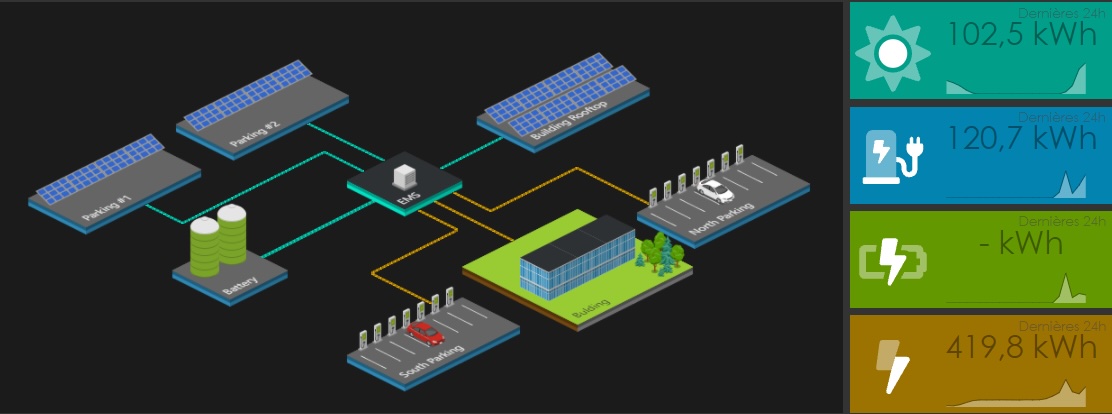London EV Show: the future of EV charging and cybersecurity
At the London EV Show, Electronic Specifier spoke with Iain Davidson, Senior Product Manager at Wireless Logic, about the critical role of secure connectivity and advanced data analytics within the EV charging industry.
The landscape of electric vehicle (EV) charging, and cybersecurity is rapidly evolving. The focus is on software, services, and productivity, driving significant changes in business models and consumer experiences.
There's a shift towards a more software and service-oriented approach in the EV charging sector. Recent changes in EU and UK trade regulations have impacted consumer appetite for EVs, indicating a need for the industry to adapt. This shift is not just about technology, but also about understanding and responding to consumer behaviour.
High availability of charging points and easy access are becoming increasingly important. This requirement is driven by the need to improve the customer experience and meet regulatory requirements, ensuring that charge points are available and functional.
Wireless Logic works closely with charge point operators and Software as a Service (SaaS) providers to connect charging points for electric vehicles. Most projects, Davidson notes, begins with a core requirement of secure and resilient connectivity, which is crucial for ensuring high availability and a positive customer experience.
Cybersecurity: a growing concern
The industry faces growing threats from cybercriminals using ransomware and denial of service attacks. The need to protect the EV charging infrastructure from these threats is more critical than ever. It’s not just about the physical infrastructure but also about the data and transactions that go through these systems.
Davidson stressed the importance of protecting assets and reacting swiftly to such attacks, noting that Wireless Logic has been actively involved in defending and responding to these cybersecurity challenges.
Charge points handle sensitive data, including payment information. Ensuring the security of this data is paramount. Companies are working on strategies to protect data, understanding that any breach could have significant consequences.
Companies are now focusing on real-time monitoring and protection of their systems. This includes monitoring communications to and from charge points and integrating early warning systems. The aim is to not just respond to attacks but also to prevent them.
EV charging stations require secure communication with servers. This involves authenticating their identity through secure credentials. Additionally, the applications running on these charge points need robust security implementations. It's vital for these stations to establish communication exclusively with authorised destinations and to be fortified against various cyber threats, including malware, ransomware, and man-in-the-middle (MiTM) attacks. Importantly, this security infrastructure must be adaptable to keep pace with the evolving nature of cyberattacks.
Securing this two-way communication can be achieved through measures like secure private access point names (APNs), the use of encrypted virtual private networks (VPNs), and fixed private IP addresses. Charge Point Operators (CPOs) and Original Equipment Manufacturers (OEMs) must evaluate not only the security of their devices but also the security practices of their personnel and processes, as comprehensive security demands an end-to-end approach.
Wireless Logic’s Security Framework encompasses a comprehensive suite of technological capabilities, standards, and best practices designed to bolster the security measures of CPOs and OEMs. This includes enhancing identity verification and authentication policies, as well as equipping them to efficiently defend against, detect, and respond to cyber threats.
For EV CPOs and OEMs, prioritising security is essential. As the network of charge points expands, it's crucial that they incorporate secure connectivity from the outset to safeguard against evolving cyber threats.
Digital twins and IoT in EV charging
The future of EV charging lies in the adoption of digital twins and the Internet of Things (IoT). This technology allows for predictive maintenance and better monitoring of charge points. It offers a more comprehensive view of the entire ecosystem, including how assets perform and interact.
Cellular connectivity within the IoT is vital for the effective operation of the EV ecosystem. To facilitate performance monitoring, hardware maintenance, and usage management, EV charging networks require a consistent and dependable connection.
Secure, resilient, and reliable cellular connectivity fulfils these requirements, offering an efficient solution without the need for extensive cabling to connect charge points. This enables companies to scale up their operations without being constrained by communication infrastructure limitations.
But the biggest challenge for the EV industry, Davidson notes, is integrating these advanced technologies smoothly, safely, and securely. This includes ensuring effective asset management, cybersecurity, and compliance with evolving regulations.
Back in November, Wireless Logic completed the acquisition of IoThink Solutions, an international SaaS vendor who provide tools for more than 6,000 professionals around the world to monitor, control, and analyse their IoT data.
The Kheiron IoT Suite stands as its flagship product, offering a comprehensive toolkit for users to efficiently create their own IoT platforms. This customisable solution features low-code development, an array of over 750 pre-integrated devices including sensors, digital twin capabilities, and a variety of templates catering to multiple applications.

Moreover, Kheiron streamlines the management of data from diverse sources, enabling integrators to seamlessly blend it with their internal solutions within a unified data format. Versatile and adaptable, Kheiron is designed to address a wide range of needs across various sectors, including the EV market.
“The global EV market is thriving, with the UK government recently pledging more than £380 million to enhance EV charging points and infrastructure nationwide,” concludes Davidson. “As these projects materialise, the IoT will play a pivotal role.
“IoT technology is essential for monitoring energy generation, distribution, and consumption in the electric vehicle sector but also support rapid deployment to meet the growing demand for charge points.”










